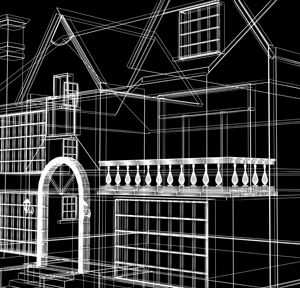Real Estate
Which Major Cities Are Cheapest For Wealthy Foreign Investors? EY/Knight Frank Report Has The Answers

A study of which cities are the most expensive and cheapest for foreign investors shows several Asian locations at the lower end - with a mixed picture when tax effects are taken into account.
Shanghai has the lowest property costs out of 15 major cities around the world as measured by Knight Frank and EY, while Paris is the most expensive.
The Global Tax Report 2015 examines the buying, holding and selling costs for foreign buyers of prime residential property over a five-year period (2010 – 2015) as well as providing illustrative taxation costs in 15 key cities worldwide.
Shanghai offers the lowest property costs out of the 15 cities (2.9 per cent); Paris is at 15.3 per cent. Berlin, the German capital, is 13.3 per cent; Geneva is 12.6 per cent and New York is 11.5 per cent.
Tax costs are lowest in Monaco, where foreign investors are charged 3.5 per cent over a five-year period for property at the same prices.
Two of the main financial hubs of Asia, Singapore and Hong Kong, are at 4.3 per cent and 3.7 per cent, respectively, the report said. Liam Bailey, global head of research for Knight Frank, said that although the costs in Hong Kong and Singapore are relatively low, stamp duties for foreign buyers meant taxes are relatively high. Stamp duty costs in Singapore, for example, are 19 per cent and 22.4 per cent in Hong Kong.
The overall property costs remain largely the same for a $1 million and $10 million property in some cities (Sao Paulo, Mumbai, Geneva) whilst others see a significant reduction in percentage terms at the $10 million level (New York and Paris).
Considering the tax costs however, Dubai and Paris follow Monaco in offering low tax levels for non-residents purchasing property at the $1 million level. Investors here incur combined tax charges of 3.6 per cent and 7.0 per cent respectively over the five-year period. This level of taxation remains roughly the same when purchasing a $10 million property; however, Paris sees its percentage figure jump to 12.8 per cent.
“When purchasing property as an investment, tax is not necessarily the first concern but it is important because it is often the after-tax return that measures the success of the investment. Our research shows that the tax burden across the cities in this report varies considerably both in amount and extent,” Carolyn Steppler, private client tax services partner at EY, UK & Ireland, said.
“From 3.5 per cent or 3.6 per cent of the property price in year five in Monaco and Dubai respectively, to over 30 per cent in Sao Paolo. However a common thread across all these countries, which shows no sign of slowing, is a continuing focus on property as a source of taxation,” Steppler said.
Currency shifts, wealth flows, tax changes and fluctuating levels of supply and demand have all had a bearing on the performance of prime residential markets worldwide, the report continued.
London
London sits neatly in the middle of the 15 cities when analysing
both property costs and tax costs. Foreign investors are charged
7.8 per cent and 5.4 per cent respectively in property costs when
buying at the $1 million and $10 million level. Looking at the
tax costs, including stamp duty land tax, investors buying
in their own name expect to pay 9.7 per cent for $1 million
investment and 20.7 per cent for $10 million.
Considering the tax costs across the 15 cities, it is a different story. Taxation is highest in Sao Paulo both at the $1 million and $10 million level, costing investors 31.5 per cent over the five-year period. It is followed by Hong Kong. Investors in Hong Kong are charged 22.4 per cent of the $1 million property cost over a five-year period but Sydney replaces Hong Kong at the $10 million mark charging foreign buyers 26.0 per cent in tax.